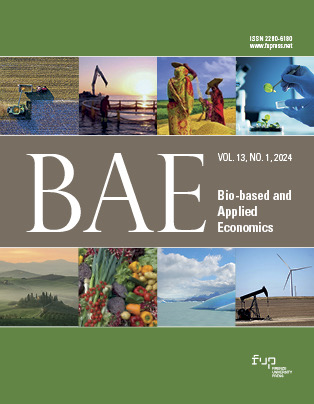The use of innovative contracts to provide agri-environmental public goods: Comparing attitudes between Ireland and other European countries
Published 2023-11-21
Keywords
- agri-environmental climate public goods,
- AECPG,
- results-based contracts,
- contract design,
- 2014 U.S. Farm Act
How to Cite
Copyright (c) 2023 Tracy Bradfield, Thia Hennessy, Riccardo D'Alberto, Emmi Haltia

This work is licensed under a Creative Commons Attribution 4.0 International License.
Funding data
-
Horizon 2020
Grant numbers 817949
Abstract
Results-based, collective action, value chain, and land tenure contracts are means to improve the management of agri-environmental public goods. The objective of this paper is to assess the understandability, applicability, and perceived economic benefit of each of these contract types by land managers and stakeholders in twelve European countries, with a special emphasis on Ireland. Using survey data, we find that most land managers agree that results-based contracts are understandable, applicable to their farm, and economically beneficial. A lower portion of land managers in Ireland than other European countries agree that value chain and land tenure contracts are understandable or applicable to their farms. The results suggest that greater efforts are required to promote collective action contracts across Europe as they are paramount to the management of public goods. To increase the adoption of innovative contracts, providing financial certainty and autonomy should be prioritized by policymakers, particularly in Ireland.






